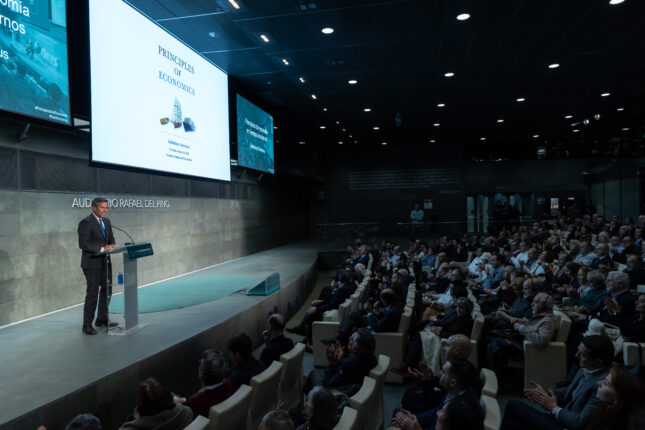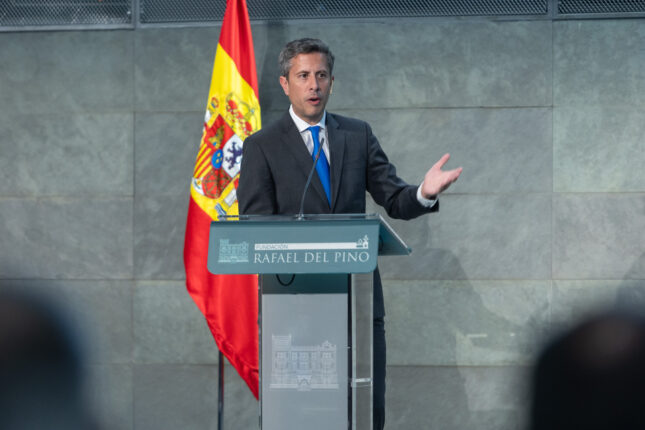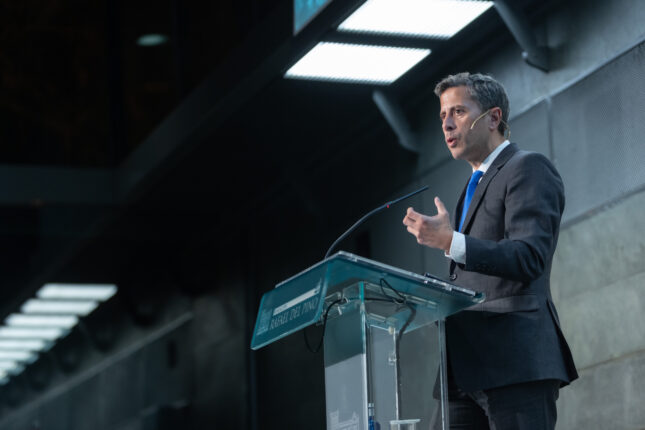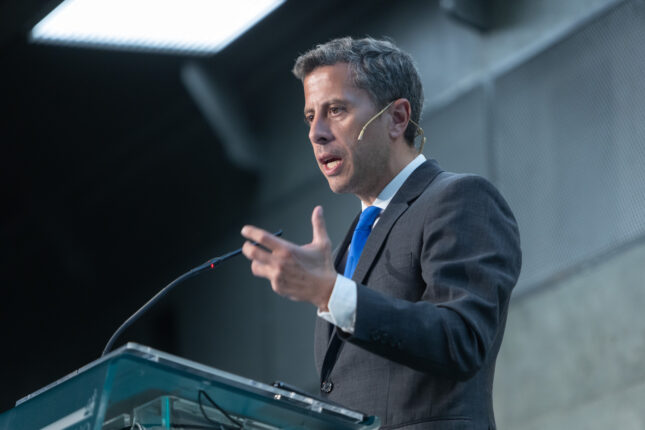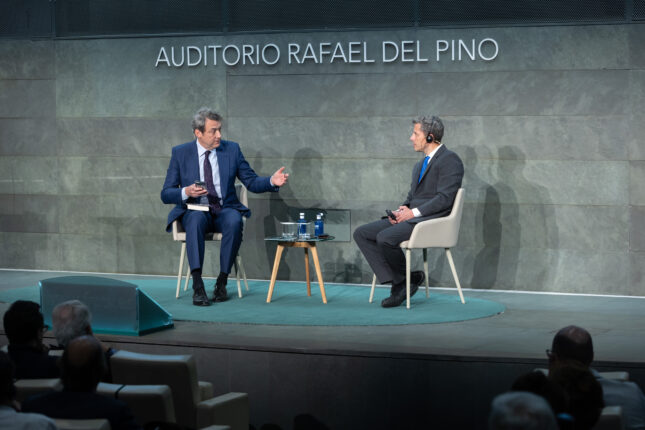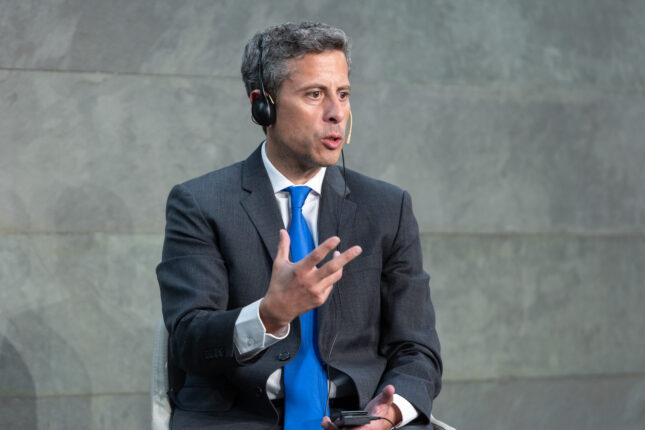Principles of economics in modern times
Summary:
On 16 January 2025, the Rafael del Pino Foundation hosted the Master Lecture entitled "Principles of economics in modern times".The event will be given by Saifedean Ammous on the occasion of the Spanish launch of his book Principles of Economicspublished by Deusto.
Saifedean Ammousauthor of the international bestseller The Bitcoin pattern (Deusto, 2022), is a leading figure in the economic and monetary field. Educated at prestigious institutions such as Columbia University, the London School of Economics and the American University of Beirut, Ammous combines his academic training with a career as a researcher, consultant and lecturer, focusing on economic management and the principles of Austrian thought.
During his speech, the author defended the importance of economics as the study of human action in a world of scarcity, underlining the usefulness of Austrian school approaches to understand current economic phenomena. "The aim of my book Principles of Economics is to provide a clear and practical guide to understanding economic fundamentals, moving away from abstract mathematical models that often do not reflect reality," he explained.
Keys to the Austrian approach: subjective value, time and capital
Ammous addressed fundamental concepts of his book, such as the subjective valuethe role of the time and the relevance of the capital in economics. He highlighted how the value of goods is not intrinsic, but subjective, determined by individual preferences. "Water, although essential for life, has a low price because it is plentiful, while diamonds, although not essential, are very valuable because of their scarcity," he illustrated.
He also stressed that time is the scarcest and most decisive resource in the economy, as it cannot be increased. "The limit of production is not in physical resources, but in the time we devote to their exploitation and development," he said. This approach emphasises the importance of capital accumulation through savings and investment, essential elements for economic progress.
Technology and the market as drivers of civilisation
Another central aspect of the conference was the analysis of the role of the technology as a key tool for increasing productivity and transforming human work. Ammous explained how technological innovations have freed people from drudgery, improved quality of life and fostered economic progress. "Thanks to technology, we have moved from an economy based on physical force to a knowledge-driven society," he said.
As for the marketAmmous described it as a system based on peaceful and voluntary exchange, in which people cooperate to satisfy their needs and desires. According to him, this interaction is the basis of capitalismunderstood as a system in which private property and capital accumulation are the pillars underpinning economic and social development.
Bitcoin: a solution for the future of money
Ammous devoted a part of his lecture to explaining the relevance of the bitcoin as a solid, decentralised alternative to traditional money. According to the author, bitcoin represents a revolutionary tool to protect purchasing power and avoid the problems arising from inflation. He also highlighted the case of El Salvador, which has adopted bitcoin as legal tender and has seen significant benefits in its financial balance.
"Bitcoin is more than a cryptocurrency; it is an opportunity to restore the foundations of civilisation, based on sound money that cannot be manipulated by governments," he said. For Ammous, bitcoin symbolises a step towards a more stable and equitable global economy.
Reflections on the market economy and civilisation
Throughout his presentation, Ammous defended the market order as the best mechanism for organising human interactions efficiently and peacefully. In his vision, the market economy allows people to cooperate freely, respecting property rights and encouraging innovation. "Trade, based on mutual benefit, is the basis of a civilised society," he said.
Finally, the author stressed the importance of protecting these principles to ensure a more prosperous future. "Civilisation progresses when we respect property, accumulate capital and encourage free trade. Only in this way can we provide better living conditions for the next generations," he concluded.
.
The Rafael del Pino Foundation is not responsible for the comments, opinions or statements made by the people who participate in its activities and which are expressed as a result of their inalienable right to freedom of expression and under their sole responsibility. The contents included in the summary of this conference are the result of the debates held at the meeting held for this purpose at the Foundation and are the responsibility of their authors.
The Rafael del Pino Foundation is not responsible for any comments, opinions or statements made by third parties. In this respect, the FRP is not obliged to monitor the views expressed by such third parties who participate in its activities and which are expressed as a result of their inalienable right to freedom of expression and under their own responsibility. The contents included in the summary of this conference are the result of the discussions that took place during the conference organised for this purpose at the Foundation and are the sole responsibility of its authors.
